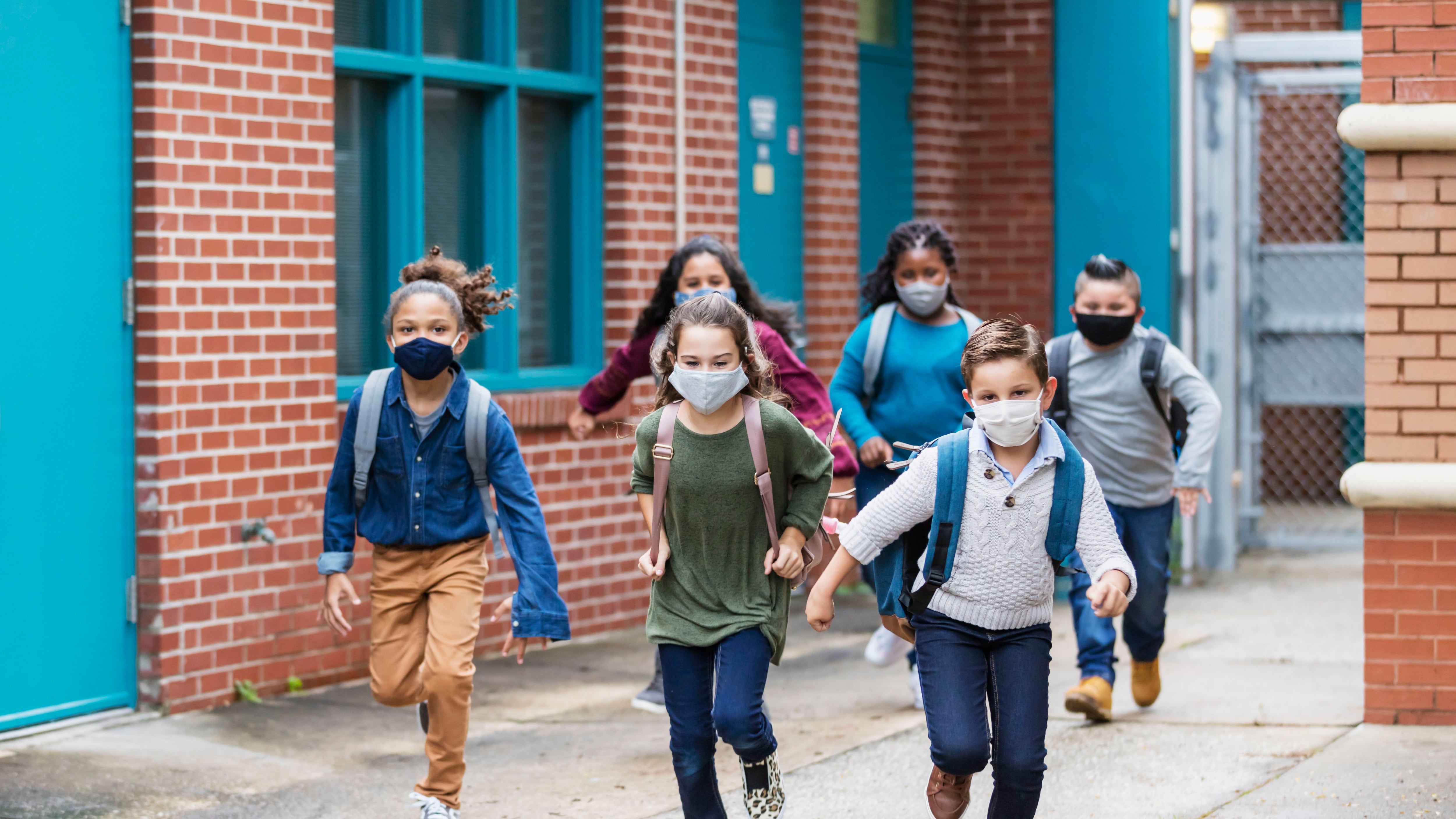
Ómicron was detected in November last year and has been the fastest spreading variant of the coronavirus around the globe. It produced an explosive wave between the end of 2020 and the beginning of 2021, then it seemed to start to recede. However, the subvariant of Ómicron BA.2 struck another blow and cases rose again. This is how, in several countries, the practice of social prevention care, such as wearing a mask and distancing indoors, has become more relaxed.
However, globally - in Western European countries such as France, the United Kingdom and Germany; and in Asia such as China and Hong Kong and South Korea, among others - the number of new cases is growing again, and experts who look at the context with concern are parading. They claim that the pandemic is not over yet and that care is necessary to avoid another new wave.
The best example chosen by experts is the United Kingdom. On March 18, the British government removed the last restrictions in place due to the pandemic. The measure came into effect just before the start of the Easter holidays. However, in a matter of days some 100,000 infections were recorded daily; while in the week ending March 12, almost 3.3 million infections were reported, the highest level since mid-February. According to specialists, this growth is related to the presence of the subvariant Ómicron BA.2.

Teresa Strella, epidemiologist and member of the National Immunization Commission (ConAin), warned that it has already been observed that after the celebrations on Father's Day, Friend's Day or at the end of the year, outbreaks of COVID-19 appear. “The pandemic has not yet ended, and since last December the circulation of the influenza virus has been added. It is therefore very important to continue to hold the four basic measures: hand washing, wearing a mask in closed or open places where we cannot guarantee adequate ventilation and distance. It is time to revalue them in the current context. The use of masks must be sustained because in the coming months of low temperatures it will be difficult to maintain adequate ventilation. In the return to normal, without distance and in places with little or no ventilation, the mask plays a leading role in controlling the transmission of respiratory infections,” said Dr. Strella.
Renowned physician Eric Topol, in this regard, noted that “coronavirus infections among those over 70 years old in the United Kingdom rose to a record level in mid-March, according to the Office for National Statistics.” At the same time, Dr. Sarah Crofts, head of analytical results of the British government, indicated that this age group is the most susceptible to developing serious diseases.
For its part, in Spain, the use of the mask or mask was about to end in closed spaces, such as offices. But the President of the Government, Pedro Sánchez, announced the willingness of the Ministry of Health to wait until the end of March to assess the epidemiological situation before deciding to end the use of the mask indoors, the only measure that has remained in place since its outdoor employment was lifted on February 10.
From the Spanish Society of General and Family Physicians, Dr. Lorenzo Armenteros, warned that the “relief” or “liberalization” of measures against Covid-19 will favor the increase in cases. “Cases can increase for several reasons and one of them is the relaxation of the measures and as they become more relaxed there is an increase,” said the specialist.

In addition, he noted that the celebration of festivities is a time of risk for new outbreaks. With regard to Ómicron, the expert said that “it has a great capacity to produce infections and this causes cases to rebound after the measures have been relaxed. We have become more flexible within the situation we have. The indoor mask is still mandatory, but this perspective that puts us ahead of reducing indoor masks or reducing the number of antigen tests or perhaps the most dangerous one is that asymptomatic people can lead a normal life.”
The Deputy Director of the Pan American Health Organization (PAHO), Jarbas Barbosa, had warned last week that the current increase in cases of COVID-19 in other regions of the world should serve as a “warning” for the Americas. However, there have been changes towards the relaxation of restraining measures in the region.
For example, in Argentina, land passenger transport services (long-distance buses) were re-enabled with Brazil, Uruguay, Paraguay, Chile, Bolivia and Peru. In the cities of Buenos Aires and La Plata and in the province of Mendoza, the mask was no longer mandatory in schools, despite the fact that the Federal Health Council (COFESA) had endorsed the need for its use at this stage of the pandemic. The Minister of Health of the Nation, Carla Vizzotti, insisted on supporting the compulsory use of the mask in school and other enclosed spaces before the arrival of autumn and in the face of the increase in circulation of respiratory viruses, such as influenza.

In Uruguay, for its part, outdoor activities and events were allowed to take place without limited capacity and without control of vaccination status. In addition, in mass events held in closed spaces, if those who attend have full vaccination, the capacity is increased to 100%, the number of people is not limited. The duration limit for parties and events is also removed. In Chile, authorities reduced capacity in most regions, a restriction that is beginning to ease in some cities, including the capital. But it keeps the use of the mask both inside and outside.
But the truth is that cases of COVID-19 can rise again. In the United States, health authorities are watching with concern the increase in COVID infections in the United Kingdom. The number of daily positives has doubled and hospitalizations are growing. “In the last year, what happens in the UK usually happens here a few weeks later,” said Dr. Anthony Fauci, the President's chief medical adviser. “Right now, there is a certain uptick in cases.”
UK officials attribute the increase in COVID-19 cases to the circulation of the Ómicron BA.2 sublineage, the widespread removal of restrictions and the decrease in immunity from vaccines and infections. Consulted by Infobae, representatives of different medical societies gave their opinions on the relaxation of measures and the future of the pandemic.

What the experts say
“I totally agree with the call for attention of the Spanish Society of General and Family Physicians. In the United Kingdom at the present time, there is an inordinate increase in cases, and this is attributed to the liberalization of care measures, along with the fact that the effects of the vaccine are decreasing over time. And it is a very pertinent discussion now in Argentina where the non-wearing of a mask in public transport and in schools is being debated. Beyond our wishes, it is unfortunately not over,” said Elisa Estenssoro, who is a member of the executive committee of the World Federation of Intensive Care Societies.
“It is possible that there will be a resurgence of COVID-19 in the winter; and there is now an increase in cases of influenza caused by the H3N2 influenza virus. Both are airborne. The speed of 'getting rid' of a safe, effective and low-cost prevention tool such as the mask is unclear,” said Estenssoro.
From the Infectology Committee of the Argentine Society of Pediatrics (SAP), the doctor Gabriela Tapponnier commented: “The measures are dynamic and they go modifying according to epidemiological changes. Hand washing, ventilation of environments and wearing masks indoors continue to be very important measures to reduce transmission, even more so at times when population circulation is practically as in periods prior to the pandemic.” According to Tapponnier, “the high transmissibility of the Ómicron variant, the presence of other viruses such as Influenza and the proximity of months of high circulation of respiratory viruses create a framework of uncertainty, so the epidemiological situation must be monitored”.

From the Argentine Association of Respiratory Medicine, President Alejandro Videla said: “At this time, the most at-risk groups, such as immunocompromised and elderly people, have to keep wearing the mask indoors because there is still circulation of the coronavirus.” “But,” added Videla, who is also head of the pneumonology service of the Austral University Hospital, “it is justified to release the use of masks in schools because there was a decline in cases of COVID-19. Prevention measures may vary depending on the epidemiological situation.”
KEEP READING:
Últimas Noticias
Debanhi Escobar: they secured the motel where she was found lifeless in a cistern

The oldest person in the world died at the age of 119

Macabre find in CDMX: they left a body bagged and tied in a taxi
The eagles of America will face Manchester City in a duel of legends. Here are the details

Why is it good to bring dogs out to know the world when they are puppies




